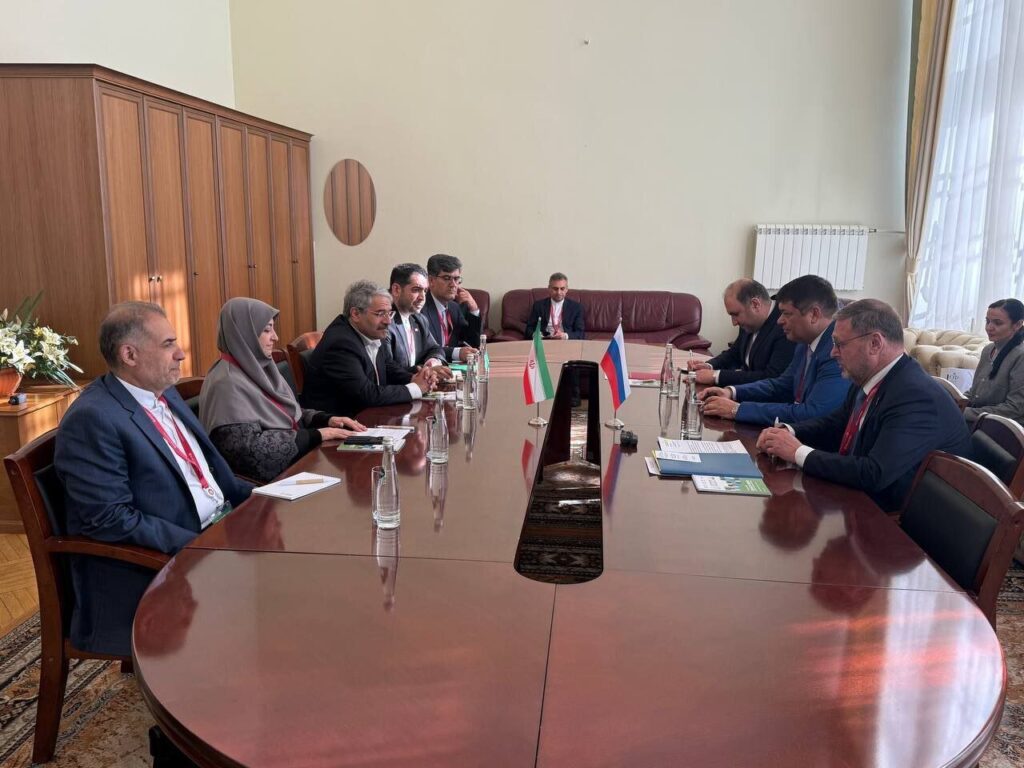Tehran – Environment Director, Sheena Ansari and Vice-Chairman of the Council of Russia, Konstantin Kosachev, have investigated the possibility of strengthening joint efforts in the environmental field.
Authorities met on the sidelines at the 11th Nevsky International Ecological Conference.
Kosachev emphasized that the two rooms of the Russian parliament (the state’s Duma and the Russian Federation) are willing to expand relations with Iran, and Kosachev reported that Russia is ready to promote environmental cooperation with Iran.
Officials have said that the Russian-Iranian parliamentary friendship group within the federal council is one of the most active groups that reflect the importance of Russian-Iran relations, continuing to emphasize the expansion of parliamentary cooperation between the two countries.
Referring to the comprehensive strategic partnership treaty with Russia, Ansari expressed optimism about the implementation of the environmental agreement achieved under the treaty.
Calling the Caspian Sea a shared environmental issue, officials have called on Russia to further improve cooperation with the state in addressing marine issues, including falling water levels and preserving biodiversity.
She also highlights the exchange of experiences between Iran and Russian legislative bodies, with the two parliaments playing an important role in maintaining the environment.
In attendance at the 11th Parliament, Iranian officials took advantage of the opportunity to procure and discuss key environmental and ecological challenges in the Caspian Sea, including water level reduction, pollution, fishing and fishing, the IRNA reported.
Participation at the Environment Ministers’ Meeting of the Caspian Sea and the BRICS Panel were one of the other programs of the Iranian delegation.
Nevsky Int. Ecological Conference
The 11th Nevsky International Ecological Conference was held in St. Petersburg, Russia from May 22nd to 23rd.
Environment ministers from more than 40 countries attended the parliament, including Iran, Azerbaijan, Algeria, Burkina Faso, Belarus, Serbia, Indonesia, Jordan, Cambodia and Kenya.
The main goal of Nevsky International Ecological Congress is to create effective and sustainable development mechanisms to maintain the environment in changing climates.
Congress 2025 again hosted an intersectoral dialogue on key environmental issues with representatives from international organizations, government authorities, and communities of business, science and experts.
The 11th Nevsky International Conference on Ecology began on May 22nd with the Youth Program. This has become an important part of our business agenda.
Participants were treated to hold dialogue and theme sessions on the resolution of climate issues, promoting environmental awareness, developing cultures for environmental volunteers, inclusion of children in the “green” agenda, and the role of youth climate initiatives in a more sustainable future.
The May 22nd roundtable and session focused on food security and climate risks, sustainable ecotourism, how to apply artificial intelligence and digital solutions to benefit the environment, international cooperation within BRICS, the conditions of the circular economy, the development of the ecosystem environment, the role of women in promoting eco-awareness, the management of mineral resources, and low-carbon technologies.
On May 23, the community chiefs, mayors and experts discussed modern sustainable development practices of enormous nature, processes that make transportation more greener, green space preservation, and new approaches to health preservation.
mt/mg

